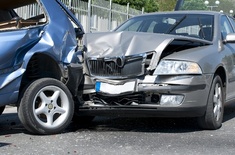You are arrested for hit and run and the police have you in the back of their car. You are at the scene of the accident, and the alleged victims are also at the scene. You are probably worried about the potential consequences you face and how it will affect your life. However, the California Supreme Court thinks that you should also express worry about the victims.
In a recent decision, the state Supreme Court ruled that if you do not ask how the victims are doing, this lack of empathy can be used against you if your case goes to trial, even if you are not asking because you are invoking your Fifth Amendment rights.
When Silence isn’t Golden (People v. Tom)
Richard Tom, a San Mateo man, was involved in a car accident in which an 8-year-old girl was killed and her sister was injured. During a two-hour gap between when he was detained and when he was read his Miranda Rights, Tom remained silent.
At trial, prosecutors told the jury that Tom’s silence displayed a “consciousness of his own guilt.” Tom was later convicted for vehicular manslaughter, in part due to the fact that he requested to leave the scene of the accident without asking how the victims were doing.
A Court of Appeals reversed Tom’s conviction, but the Supreme Court disagreed. The decision means that if you remain silent after your arrest but before officers inform you of your Miranda Rights, that silence can be used as evidence against you.
What to Do if You are Arrested after a Car Accident
This ruling proves the importance of knowing your rights if you are arrested. If you are placed under arrest at the scene of a car accident, it is critical that you do the following:
- Immediately tell every police officer present that you wish to exercise your right to remain silent and you will not be making any statements
- Use a smartphone or recorder to record the statement and inform the officer you are taping the conversation to preserve your rights
If you simply sit quietly without clearly stating that you are exercising your right to remain silent, the prosecution can introduce as evidence that you did not ask about the victims, which will make you appear heartless and guilty.
What Wallin & Klarich Thinks
The appalling decision interferes with the rights of citizens and allows the prosecution and police to play games with people after they have been placed under arrest. It has always been assumed that people have an absolute right to remain silent, and that silence has never been allowed to be used as evidence against you in court.
The courts have consistently maintained that you have a constitutional right to say nothing. However, this ruling unnecessarily changes that. If you do not make an unambiguous assertion of your Fifth Amendment right to remain silent, your silence can be used against you.
Call the Criminal Defense Attorneys at Wallin & Klarich Today
If you are being accused of hit and run, vehicular manslaughter, or any serious crime, you need to speak to an experienced criminal defense attorney immediately. At Wallin & Klarich, our skilled attorneys have over 30 years of experience successfully defending clients accused of these crimes. We can help you navigate the complex legal process and understand your legal rights.
With offices in Los Angeles, Sherman Oaks, Torrance, Tustin, San Diego, Riverside, San Bernardino, Ventura, West Covina and Victorville, there is an experienced Wallin & Klarich attorney available to serve you no matter where you work or live.
Call us today at (888) 280-6839 for a free telephone consultation. We will be there when you call.


